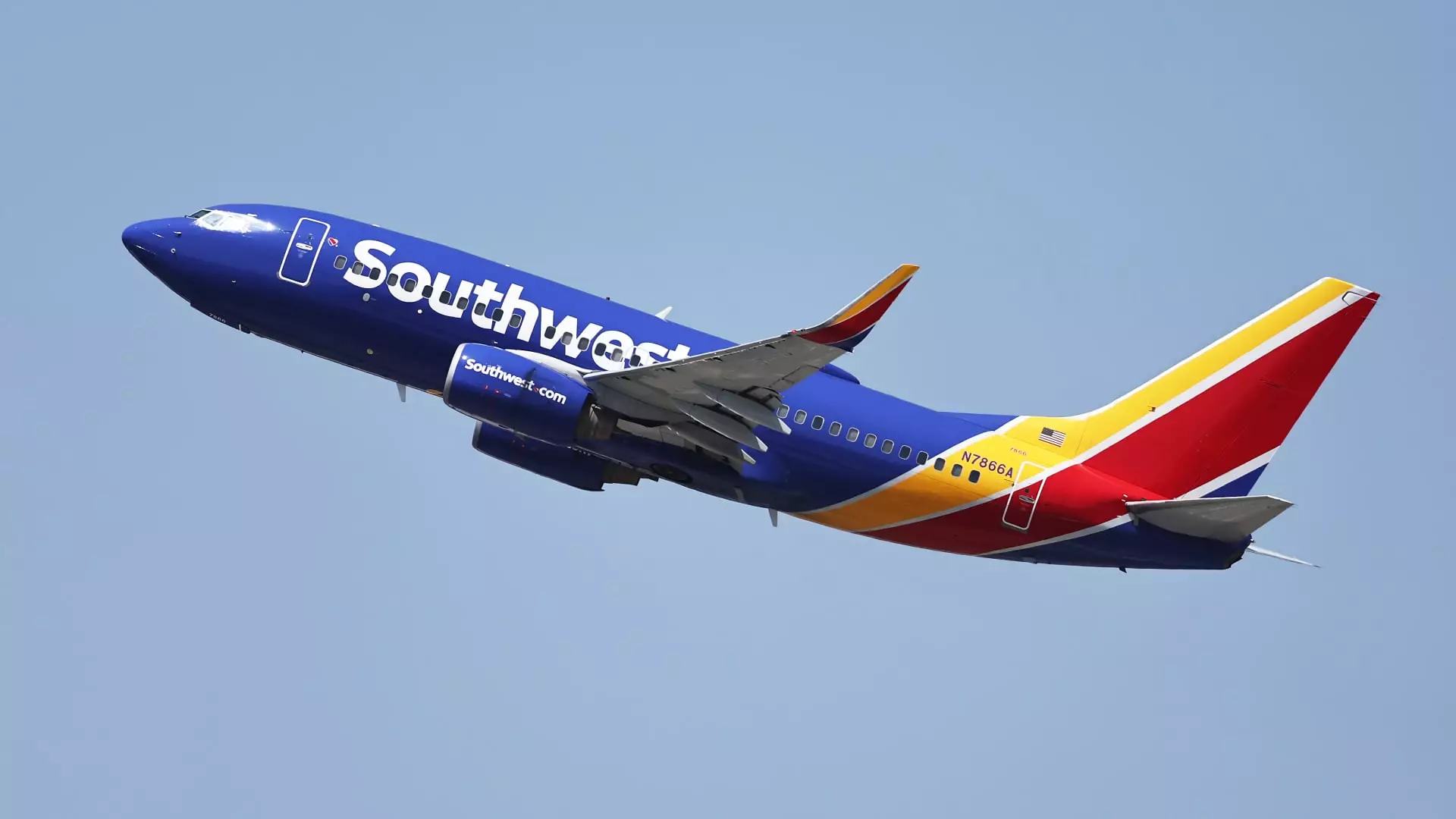Southwest Airlines, a stalwart in the aviation industry for over five decades, finds itself at a critical juncture where it must adapt to the evolving landscape of air travel. Recent demands for enhanced profitability, primarily instigated by activist Elliott Investment Management, have shone a spotlight on the necessity for substantial changes within the company. This has prompted Southwest to announce a series of ambitious initiatives aimed at revitalizing its business model and ensuring long-term success.
A Shift Towards Assigned Seating
One of the most significant alterations to Southwest’s operational framework is the departure from its iconic open seating policy. This paradigm shift towards assigned seating reflects a broader strategy not just to streamline customer experience but also to tap into revenue-generating opportunities through tiered seating options. By introducing premium seats that offer additional legroom, the airline aims to cater to a market segment willing to pay more for enhanced comfort and convenience.
In an effort to diversify its customer base and appeal to younger demographics, Southwest plans to revamp its marketing strategies. This includes leveraging modern digital platforms, such as Google Flights and Kayak, which will enhance visibility and accessibility for potential travelers. The shift in advertising focuses on engaging a younger audience that values not only affordability but also unique travel experiences. As noted by COO Andrew Watterson, adapting marketing tactics is essential to resonate with today’s consumer expectations.
The airline acknowledges that altering its network strategy is crucial for navigating the path back to profitability. Decisions will have to be made regarding the optimization of routes, potentially rationalizing its operations in certain markets rather than implementing drastic measures like furloughs or station closures. This thoughtful approach aims to enable staff transfers to more profitable locations, effectively managing resources while addressing the bottom line.
Leadership Under Scrutiny
Pressure from Elliott Investment Management has not only influenced operational measures but has also extended to governance. The activist firm is advocating for leadership changes within Southwest, pointing to perceived inadequacies in the management’s performance concerning financial outcomes. In recognition of this pressure, current executive chairman and former CEO Gary Kelly has announced his plan to step down, indicating a willingness to embrace fresh perspectives that could reignite the airline’s growth trajectory.
With an investor day scheduled imminently, Southwest Airlines plans to detail its transformative strategies and provide clarity on route adjustments. As the airline embarks on this pivotal phase of reshaping its identity, the commitment to adapt while preserving its core customer-centric ethos will be vital. In the face of fluctuating market conditions, Southwest’s journey toward a more profitable future encapsulates the broader challenges and opportunities faced by airlines in an ever-evolving industry landscape.


Leave a Reply